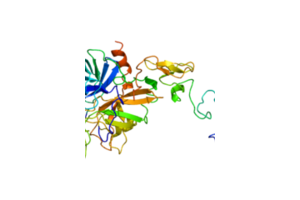Drugs Information:
Protein C
Basic Information

|
||
| ID | DDInter1542 | |
| Drug Type | biotech | |
| Protein Chemical Formula | None | |
| Protein Average Weight | - | |
| CAS Number | - | |
| Description | Protein C is an endogenously occurring plasma protein that plays a key role within the coagulation cascade. Protein C is a zymogen, or enzyme precursor, of a vitamin K-dependent anticoagulant glycoprotein (serine protease) that is synthesized in the liver. It is converted by the thrombin/thrombomodulin-complex on the endothelial cell surface to Activated Protein C (APC). Once in its activated form, APC functions as a serine protease with potent anticoagulant effects, especially in the presence of its cofactor protein S. APC exerts its effect by inactivating essential components of the coagulation cascade (specifically factors V and VIII), which leads to a decrease in thrombin formation, and therefore a reduction in clot formation. The Protein C pathway provides a natural mechanism for control of the coagulation system and prevention of excessive procoagulant responses to activating stimuli. A lack of protein C in the body would lead to unchecked coagulation activation, resulting in thrombin generation and intravascular clot formation. Protein C is available in concentrated form as the product Ceprotin, which is indicated for use in pediatric and adult patients with severe congenital protein C deficiency for the prevention and treatment of venous thrombosis and purpura fulminans. | |
| ATC Classification | B01AD12 | |
| Sequences | None | |
| Useful Links | DrugBank PubChem Substance KEGG Drug Wikipedia | |
Interactions with
Protein C
Filter:
| Severity level | ID | Name | Mechanism | Detail |
|---|
Interactions with diseases
Filter:
| Severity level | Disease name | Text | References |
|---|
Interactions with foods
Filter:
| Severity level | Food name | Description | Management | Mechanism | References |
|---|
Interactions with compound preparation
| Multi-DRUG trade | Multi-DRUG | Drug type | Warning | Note |
|---|